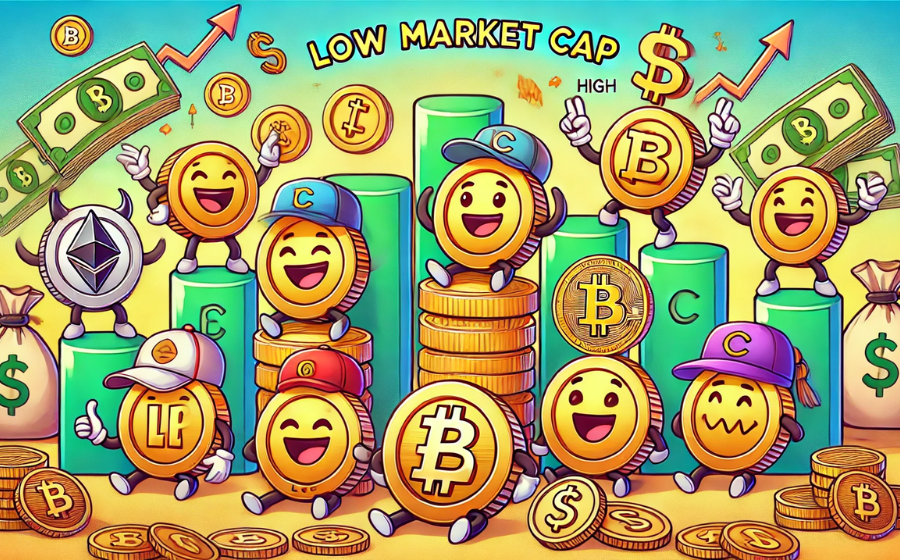
KEYTAKEAWAYS
- Immutable X revolutionizes NFT transactions on Ethereum with zero gas fees and massive scalability, using STARK zk-rollups technology.
- Polygon enhances Ethereum’s capabilities, introducing a multi-chain system with a focus on scalability and interoperability through zero-knowledge technology.
- Optimism, EigenLayer, and Jupiter introduce innovations in transaction speed, security models, and privacy, advancing blockchain technology's scalability and user accessibility.

CONTENT
In the ever-evolving landscape of blockchain technology, the quest for scalability, efficiency, and user-friendly solutions has led to the emergence of several innovative platforms. Among these, Immutable X, Polygon, Optimism, EigenLayer, and Jupiter stand out as pioneers, each addressing unique challenges within the ecosystem. Immutable X emerges as a groundbreaking layer-two solution on Ethereum, targeting the specific needs of NFT transactions with its zero gas fee structure and massive scalability. Polygon extends the capabilities of Ethereum, offering a versatile framework for building and connecting blockchain networks. Optimism focuses on enhancing transaction speed and cost-effectiveness through Optimistic rollups. EigenLayer introduces a novel concept of restaking to fortify Ethereum’s security model further. Lastly, Jupiter aims to democratize blockchain accessibility with its emphasis on top-tier encryption and user privacy. These platforms collectively push the boundaries of what’s possible in blockchain technology, aiming to foster a more inclusive, secure, and efficient digital future.
In the following section, we will elaborate on each project respectively:
IMMUTABLE X (IMX)
Immutable X positions itself as the first layer-two scaling solution for NFTs on Ethereum, aiming to address Ethereum’s limitations such as low scalability and high gas fees. It allows for instant trading and massive scalability while ensuring zero gas fees for minting and trading NFTs, without compromising security. Built with STARK zk-rollups technology, it enables the creation and distribution of assets like ERC-20 and ERC-721 tokens on a massive scale. Chris Clay, the game Director of Gods Unchained (a project on Immutable), highlighted its potential to implement systems previously impossible, aiming for a world-class user and developer experience.
Moreover, Immutable X has joined forces with Ubisoft’s Strategic Innovation Lab to create a new gaming experience, marking a significant development for Web3 gaming. As the leading Layer 2 for NFTs and blockchain gaming secured by Ethereum, Immutable offers unmatched speed, scale, and flexibility for developers. It supports the minting of millions of carbon-neutral NFTs with ease and features a user-friendly wallet UX that caters to all types of gamers. Immutable’s global order book enables instant distribution of NFTs across every marketplace in its network, promising Ethereum-grade security and zero carbon footprint for all NFTs traded. With over 600x more efficiency than Ethereum L1, Immutable enables real-time minting, transferring, and trading, supporting a vast ecosystem of games ranging from MMORPGs to strategy games and beyond.
POLYGON (MATIC/POL)
Polygon (previously Matic Network) is a well-structured, easy-to-use platform for Ethereum scaling and infrastructure development. Its core component, Polygon SDK, is a modular, flexible framework that supports building multiple types of applications, from optimistic rollup chains to ZK rollup chains and standalone chains. Polygon transforms Ethereum into a multi-chain system, akin to others like Polkadot, but with the benefits of Ethereum’s security and ecosystem. The MATIC token continues to play a crucial role in securing the system and enabling governance.
Polygon is pioneering the future of sending, programming, and receiving value as easily as information is sent over the internet. With the introduction of Aggregated Blockchains (AggLayer) and Polygon 2.0, the ecosystem is embracing zero-knowledge technology for enhanced scalability and interoperability. Polygon’s solutions, including Polygon PoS, zkEVM, and the upcoming Polygon Miden, are designed for public chains, app-specific chains, and decentralized identity, aiming for a carbon-neutral footprint. The ecosystem boasts over 28K contract creators, 219.11M unique addresses, and a $12.80B NFT sales volume, underpinning its status as the most adopted scaling technology.
OPTIMISM (OP)
Optimism is a layer 2 scaling solution for Ethereum, utilizing Optimistic rollups to bundle transaction data, making transactions cheaper and faster. It functions on top of the Ethereum mainnet, allowing transactions to take place on Optimism with data posted to the mainnet for validation. It aims to complement Ethereum’s security with increased efficiency and supports popular DeFi wallets like MetaMask. The OP token governs Optimism and participated in a notable airdrop to early users, indicating its role in community engagement and network governance.
Optimism’s OP Mainnet is a low-cost, fast, and scalable Ethereum L2 blockchain, offering developers an EVM-equivalent architecture to scale apps at a fraction of the cost. With over $3B saved in gas fees and 141M+ transactions, Optimism is advancing towards the Superchain project for enhanced interoperability. The ecosystem is backed by the OP Stack for building a cohesive layer of integrated L2s. Optimism emphasizes sustainable ecosystem funding through Retroactive Public Goods Funding, encouraging community-driven development for the public good.
EIGENLAYER

EigenLayer is a decentralized Ethereum restaking protocol that introduces the concept of restaking, allowing ETH stakers to extend their cryptoeconomic security to other applications on the network. It addresses the challenge of fragmented security in blockchain networks by aggregating and extending cryptoeconomic security through restaking. This not only enhances Ethereum’s security model but also creates a more unified and robust system for the ecosystem.
EigenLayer supports both natively staked ETH and liquid staked tokens, optimizing validation services for new protocols with lower marginal costs. Developers gain access to Ethereum’s staked capital base and decentralized validator set, making previously impossible mechanism designs feasible. Key initiatives include data availability layers, decentralized sequencers, and low-latency settlement chains, contributing to a more scalable and interoperable blockchain ecosystem.
JUPITER (JUP)
Jupiter aims to make blockchain accessible and safe for everyone, featuring military-grade encryption to ensure data privacy and security. It supports the development of secure dApps on both public and private networks, emphasizing user data protection. Jupiter’s approach to leveraging elite encryption capabilities demonstrates its commitment to enhancing the blockchain landscape with a focus on security and accessibility for all users.
Jupiter is making waves on the Solana blockchain as a decentralized exchange (DEX) aggregator. In a significant move, it is set to distribute the JUP token on January 31, marking a notable event in the DeFi and cryptocurrency sectors. This token distribution is aimed at deeper integration within the Solana ecosystem, benefiting nearly a million Solana wallet holders who have engaged with the Jupiter protocol before a certain snapshot date.
JUP has a total supply of 10 billion tokens, with 50% allocated for community distribution and 50% for team and operational needs. The circulating supply at launch will include 1.35 billion JUP. A total of 4 billion JUP will be distributed across four waves, with the first wave distributing 1 billion JUP. The distribution includes 20% of tokens evenly across eligible wallets, 70% based on user engagement with the protocol, and 10% reserved for community members and developers.
CONCLUSION
The development of Immutable X, Polygon, Optimism, EigenLayer, and Jupiter represents significant strides towards overcoming the inherent limitations of early blockchain infrastructures. Immutable X’s solution to the high costs and inefficiencies of NFT transactions on Ethereum, alongside Polygon’s framework for scalable and interconnected blockchain networks, marks a pivotal shift towards more adaptable and efficient systems. Optimism’s approach to transaction cost reduction and speed enhancement, coupled with EigenLayer’s innovative security model, showcases the ongoing efforts to balance performance with security. Furthermore, Jupiter’s focus on encryption and user privacy underlines the growing importance of safe and accessible blockchain applications. As these platforms continue to evolve, they not only offer immediate solutions to existing challenges but also lay the groundwork for the future expansion of the blockchain ecosystem, promising a more scalable, secure, and user-centric digital world.















